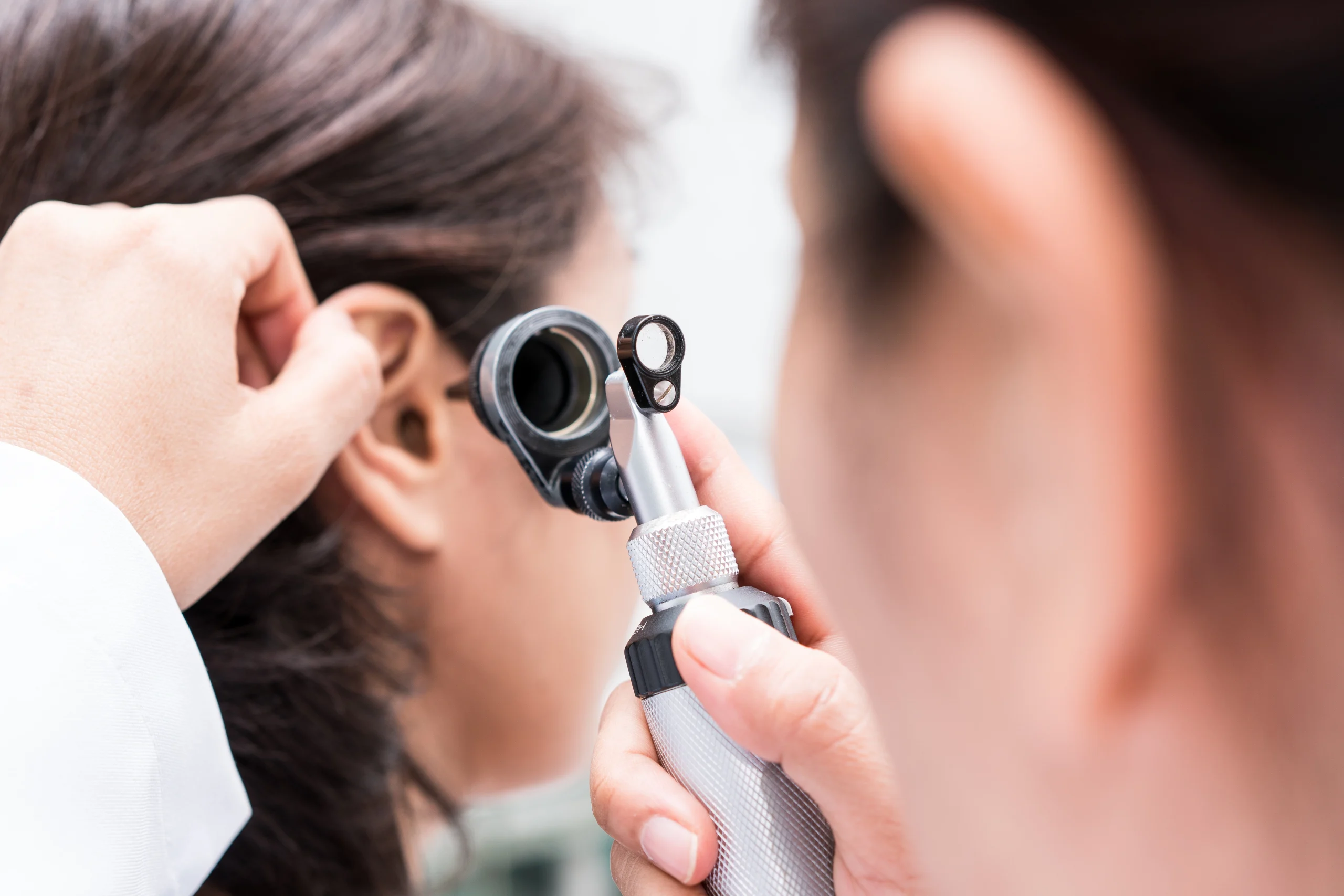Estimate Your VA Disability Benefits for Service-Related Hearing Loss
Hearing loss is one of the most common service-connected disabilities for veterans. If you suffered noise-induced hearing loss during your time in service, you may be eligible for disability compensation from the VA.
Our VA Hearing Loss Calculator can help you determine an estimate of the disability rating and monthly compensation you may receive. To use the calculator, enter your hearing loss levels based on your audiogram results. The calculator will determine your hearing impairment and disability rating based on VA criteria.
Disclaimer:
This calculator is intended to provide an estimate of your possible retro benefits. It is not a guarantee of your actual benefits or rating. The VA disability compensation rates may vary slightly from case to case, depending on the severity of your disability and other factors.
Your VA Hearing Disability Rating:
Keep in mind this calculator only provides an estimate. The actual rating and benefits determination will be made by the VA after reviewing all evidence in your claim. Working with an experienced VA disability attorney can help ensure you receive the maximum allowable disability rating and compensation.
At Wettermark Keith, our accredited VA attorneys have helped thousands of veterans obtain the benefits they deserve. If you have been denied the VA disability benefits you've earned through your service to our country, our lawyers are prepared to appeal that denial. Contact our team today at 877-715-9300 to learn more, or to appeal a denied VA disability claim.
What Causes Hearing Loss in Veterans?
Military service exposes our country's bravest men and women to unbelievable levels of noise - weapon fire, explosions, aircraft, heavy machinery, and the loud metallic droning of ship engine rooms. The sounds of combat aside, even routine noise - like drill instructors shouting - can lead to hearing loss over time. Until relatively recently, proper hearing protection was not always provided or mandated during military service. As a result, hearing problems are one of the most prevalent service-connected disabilities among American veterans. Over 2.7 million veterans receive disability compensation for hearing loss or tinnitus.
In addition to noise exposure, head injuries and ear infections during service can also cause hearing loss. Both heredity and natural aging may also play a role over time. Overall, however, noise exposure during combat remains the most common factor of veteran hearing loss.
We realize that the effects of hearing loss go far beyond just difficulty communicating. Hearing impairment impacts quality of life, work performance, social functioning, mood, cognitive decline, and brain health.

Qualifying Conditions for VA Hearing Loss Disability
Not all hearing trouble qualifies for VA compensation. You must have a diagnosed hearing condition that is formally linked back to your active duty service. Some common qualifying diagnoses include:
- Sensorineural hearing loss - damage to the inner ear or auditory nerve caused by noise, aging, disease, or trauma. This is the most common type of hearing loss.
- Conductive hearing loss - obstruction in the outer or middle ear blocking sound waves. Causes include earwax, ear infections, ear trauma, or congenital abnormalities.
- Mixed hearing loss - combination of conductive and sensorineural loss.
- Noise-induced hearing loss (NIHL) - gradual hearing damage from chronic loud noise exposure. This is extremely common in veterans.
- Sudden hearing loss - unexplained, rapid hearing loss occurring over 72 hours. Can be temporary or permanent.
- Tinnitus - ringing, buzzing, roaring, or other noises in the ears. Often results from inner ear cell damage.
- Meniere's disease - disorder causing vertigo, ringing in the ears, and hearing loss.
Proving Service Connection for Hearing Loss
To receive any VA benefits, you must prove your condition is “service connected.” This means it's linked to your active duty service.
There are three ways to prove a service connection for VA hearing loss claims:
1. Direct Service Connection
This requires evidence showing your hearing loss initially began in service or was directly caused by military noise exposure, acoustic trauma, or other in-service events. Examples include working on loud flight decks or exposure to heavy weapons fire during combat.
2. Presumptive Service Connection
Certain chronic conditions, like sensorineural hearing loss, are presumed by VA to be service-connected if they worsen to a compensable degree within one year after discharge. This eases the burden of proving direct service connection when onset was near your active duty period.
3. Secondary Service Connection
This covers hearing loss caused or permanently aggravated by another already service-connected disability. For example, hearing loss resulting from a traumatic brain injury (TBI) incurred during service.
Our accredited VA attorneys can advise you on the strongest argument for service connection, depending on your situation.
Gathering Evidence to Prove Your VA Disability Claim
Merely claiming you have hearing loss from service isn't enough for VA benefits. You must provide objective evidence demonstrating:
- You have a current diagnosed hearing condition.
- You experienced an in-service injury, event, or noise exposure that could have caused hearing loss.
- Your current hearing loss was likely caused by or related to your military service.
A key component of any VA disability claim is showing proof of an in-service event, injury, or disease that caused the current medical condition. For hearing loss claims, the evidence must demonstrate you experienced acoustic trauma or excessive noise exposure while on active duty. Examples include:
- Serving in a combat role with routine exposure to loud weapons, artillery, grenades, etc.
- Working on loud aircraft, vehicles, or naval engines
- Patrolling flight lines or other high noise areas
- Participating in military exercises with explosions
- Suffering a head injury or concussion
Below are some of the best forms of evidence to prove service-connected noise exposure:
- Military Personnel Records - documents like DD Form 214 can note hazardous duty assignments. Awards and decorations like Combat Infantryman Badge also confirm combat service.
- Service Treatment Records - though damage may not show right away, audiograms or complaints of hearing issues in service support a direct service connection.
- Buddy Statements - affidavits from fellow veterans who served alongside you and witnessed events that occurred during your service can verify damaging noise exposure.
- Personnel Records - performance reviews or duty assignments can confirm your time in high-noise environments.
- Photographs/Videos - photos or videos showing you in proximity to loud noise sources can also demonstrate exposure.
The more types of evidence you submit, the better. An accredited VA representative can ensure all necessary records are obtained and submitted to the VA to strengthen your claim.
Secondary Conditions Can Increase Your Overall Rating
In some cases, veterans are only awarded a 0-10% rating for hearing loss based directly on audiogram results. However, the full impact of hearing impairment goes beyond test scores.
Often, hearing loss leads to additional medical problems like:
- Tinnitus
- Vertigo
- Ear infections
- Headaches
- Balance issues
- Meniere's disease
When these secondary conditions develop as a result of service-connected hearing loss, they can also be claimed for VA disability. Even if your hearing loss rating is low, claiming these related secondary conditions allows them to be combined into your total rating evaluation. For example, if you have a 10% rating for hearing loss and are granted 10% each for tinnitus and vertigo secondary to hearing loss, your combined disability rating would be 30%. This results in higher monthly compensation that more fully accounts for the full effects of your hearing disability.
Make sure to obtain diagnosis and treatment for any additional hearing problems you experience. An accredited VA representative may be able to build a strong case that links your secondary conditions to your service-connected hearing loss.
Tinnitus as a Secondary Condition
Tinnitus, or ringing in the ears, is also ratable as a service-connected condition.
To prove tinnitus as a secondary service connection, you must show:
- You have a current tinnitus diagnosis
- You already have service-connected hearing loss
- Medical evidence establishes your tinnitus was caused or aggravated by your hearing loss
The VA typically awards a 10% rating for tinnitus, as it is considered to be a subjective condition. You can receive separate ratings for tinnitus and hearing loss. Adding secondary conditions to your claim allows them to be factored into your overall VA disability rating. For example, a 10% rating for hearing loss plus a 10% rating for tinnitus equals a combined 20% rating. Partner with an experienced accredited representative to ensure you receive the maximum allowable benefits.
Filing Your Initial VA Claim for Hearing Loss
Once you have a qualifying diagnosis and supporting evidence, you are ready to file a formal claim with the VA for service-connected hearing loss. Below are your filing options:
1. Submit VA Form 21-526EZ
The VA’s official disability claim form. Lists all current and past conditions.
2. File VA Form 21-4138 Statement in Support of Claim
A simple letter format to identify the benefit sought and condition claimed.
3. Initiate Your Claim on eBenefits
VA’s online portal allows you to upload evidence and track status.
4. Visit a VA Regional Office In Person
Find VA office locations on VA.gov. Make an appointment to submit your claim.
No matter how you file, attach copies of all supporting records, including:
- Military service records
- Medical diagnostic tests and doctor's opinions
- Lay statements from others
- Relevant private/VA treatment records
Work with an accredited VA representative to ensure you submit a complete Fully Developed Claim (FDC). These complete claims have the best chance of faster approval.
VA C&P Exam for Hearing Loss: What to Expect
After receiving your claim, the VA will schedule you for a Compensation and Pension (C&P) exam to assess your hearing loss and its relationship to your military service. The examiner will:
- Review your entire claims file and medical history.
- Conduct the required hearing tests for VA rating purposes.
- Assess your current symptoms and their functional impact.
- Provide a medical opinion on whether your hearing loss was caused or aggravated by military service.
Answer all questions completely and honestly at your C&P exam. Give specific examples of noise exposure during service and resultant hearing problems and describe how your hearing loss affects your work, relationships, and daily activities. These details help demonstrate the severity or your hearing impairment.
If the examiner provides an opinion that downplays your hearing loss, but you have solid evidence supporting your claim, consider getting a supplemental medical opinion from your own private audiologist to counter the VA's findings. These exam results can make an enormous difference in your disability rating and resulting disability compensation.

Have Questions? Contact Wettermark Keith's Accredited VA Attorneys.
The veteran disability claims process can be confusing and feel overwhelming. Thankfully, you don't have to face it alone. Partnering with one of our VA-accredited attorneys can provide you with critical guidance and support throughout the process. Our team of licensed attorneys has decades of experience representing veterans seeking VA benefits for hearing loss, tinnitus, and other service-connected disabilities. They understand the VA's strict requirements and know the best ways to build persuasive appeals and maximize your rating.
Wettermark Keith, with offices located throughout Alabama, Tennessee, and Florida, has an excellent reputation as one of the most accomplished personal injury firms in the country. Our reach is not only regional but includes a diverse range of practice areas, including premises liability law, personal injury cases, auto wrecks, trucking wrecks, nursing home abuse, medical malpractice, on-the-job injuries, social security disability, and veterans’ disability claims, to name just a few. At Wettermark Keith, we believe in taking cases personally. Our purpose is to practice with care and compassion- to tell our clients’ stories and make their voices heard. We do this by building strong relationships based on constant communication and an unwavering dedication to truth and trust. You should never wonder what’s going on with your case. We will keep you in the loop and represent you as if you are family- because to us, you are.
Frequently Asked Questions
You may qualify for VA disability pay if you have a current clinical diagnosis of sensorineural, conductive, or mixed hearing loss that is causally linked through evidence to acoustic trauma, excessive noise exposure, head injuries, or other events that occurred during your active duty military service.
The key to eligibility is having a confirmed diagnosis based on audiometric testing and a medical opinion relating your hearing loss to your time in service, either directly due to noise exposure or secondarily caused by another service-connected condition. With the proper evidence, you can potentially get approved for VA compensation, health care, and other benefits for hearing loss.
Yes, service connection and disability compensation for tinnitus is possible with the right evidence. Tinnitus, or ringing in the ears, often arises secondary to noise-induced sensorineural hearing loss. If you have service-connected hearing loss, submit a claim for tinnitus as secondary to the hearing loss. With a current diagnosis and medical opinion linking tinnitus to your service-connected disability, you can often obtain a 10% tinnitus rating in addition to your hearing loss rating.
One major benefit of obtaining service-connected disability status for hearing loss is that the VA will then provide hearing aids and audiology care at no cost. This includes hearing aids customized to your level of impairment, regular batteries, follow-up adjustments, and replacements as needed. Cochlear implants may also be covered if hearing aids no longer adequately help. VA audiology clinics measure your hearing, order the hearing aids, and teach you proper use and care. You earned access to these expensive devices and services through your military service.
Partnering with one of Wettermark Keith's experienced VA attorneys to handle your appeal can be key to success in appealing a denied disability claim. Our attorneys are experts in VA law and procedure - they know what evidence is needed to prove service connection, how to effectively argue your case to reverse denials, and how to navigate the appeals process. Having a skilled advocate handle the appeals paperwork, obtain supporting records, and communicate with the VA greatly improves your chances of approval. Consult with an accredited attorney to discuss your claim options.
Total Disability based on Individual Unemployability (TDIU) is a benefit that pays at the 100% rate if service-connected disabilities prevent sustaining substantial gainful employment. If your hearing loss interferes with your capacity to maintain a career in your line of work, you may qualify for TDIU. For example, if you must be able to hear well for safety or performance reasons. To establish TDIU, submit evidence showing how your hearing loss impacts your ability to obtain and perform work duties. This can include records of workplace accommodations or difficulties interacting with customers. With TDIU approved, you receive the 100% monthly compensation rate even if your hearing loss rating is lower.
Yes, VA disability compensation for hearing loss does not prohibit you from working or earning additional income. The monthly payments are designed to supplement lost earnings capacity due to service-connected disability. Many veterans work at least part-time jobs while concurrently receiving VA disability pay. As long as your hearing loss remains diagnosed and static, your VA rating will continue regardless of employment status. However, it is important to note that the VA may reduce your disability rating if your employment income exceeds a certain threshold.
YOU DON’T HAVE TO DO THIS ALONE
CONTACT VA DISABILITY LAWYERS
To learn more about our law firm, our services, how to access our veterans law resources, and more, contact us today.
You get a free consultation and we won’t charge you a dime until we’ve won your case.



